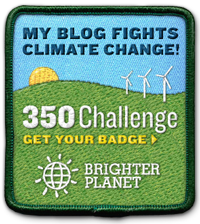Practice 3R to Recyle
The 3R's are basically:
Smart ways to follow for this rule:
Second R,
Smart ways to reuse:
Smart ways to follow for this rule:
Crush Shopping
Waste reduction starts at the supermarket. By making slight alterations to your shopping list you can significantly reduce the amount of waste created in and around the home.
Buy only what you need
Reduce unnecessary waste by avoiding those pointless purchases. Items that rarely get used can be borrowed or shared with others.
Buy products that can be reused
Buy bottles instead of cans and rechargeable batteries. Items such as this create very little waste, as they don’t have to be thrown away after they have been used just once.
Buy all-purpose household cleaner
Instead of buying many different ones for each cleaning role.
Buy products with little packaging
So that less packaging ends up in your rubbish bin. For those items you use regularly, buy them in bulk instead of in smaller amounts. This will save you money as well as reduce waste.
Sell or give away unwanted items
Reduce waste by donating unwanted items to family, friends or neighbours. You could even sell your possessions in a car-boot sale and earn some extra cash.
Second R,
Smart ways to reuse:
Carrier bags and twist ties. Carrier bags can be reused in the shops or as bin bags around the house. Paper bags make useful wrapping paper and twist ties can be used to secure loose items together, such as computer wires. Envelopes By sticking labels over the address you can reuse envelopes. Alternatively, old envelopes can be used as scrap paper to make notes on. Jars and pots. By cleaning glass jars and small pots, you can use them as small containers to store odds and ends. Newspaper, cardboard and bubble wrap Make useful packing material when moving house or to store items. Old clothes - can be made into other textile items such as cushion covers or teapot cosies. Packaging Such as foil and egg cartons can be donated to schools and nurseries, where they can be use in art and craft projects. Scrap paper Can be used to make notes and sketches. Don't forget to recycle it when you no longer need it. Tyres Old tyres can be given to your local petrol station where they will be recycled. Or you could make a tyre-swing by tying a strong rope around a tyre and attaching it to a tree. Used wood Can be used in woodcrafts for making objects such as a spice rack or a bird table. Alternatively it could be used as firewood.
Useful tips in reusing your old items:
Old Electrical Equipment Donate old electrical equipment to schools or community centers so that others can reuse them. Donate Old Clothes and Books Other people can reuse your unwanted clothes and books when you donate them to charity shops. Car-boot Sale Have a car-boot sale and get rid of some unwanted items. Other people may find a use for them, plus it gives you the opportunity to earn some extra cash. Rechargeable Batteries Rechargeable batteries can be reused many times before they need throwing away, opposed to regular batteries that create unnecessary waste. Build a Compost Bin You can reuse many waste items, such as eggshells and old tea bags, using a compost bin. This waste then degrades and turns into compost that can be used to help your garden grow. Grass Cycling After mowing your lawn, instead of throwing the grass cuttings away, leave them in your garden. The nutrients from the cuttings go back into the soil and act as a fertiliser.
Third R,
Recycling in and around the home can be easy when you know how. By thinking carefully about what products you buy at the supermarket and how to recycle them is the first step towards efficient recycling.
Find ways of recycling different materials
Many materials can be recycled, such as paper, plastic, metal and glass. Other items such as furniture, electronic equipment, building material and vehicles can also be recycled but many people don't often think to do so.Buy products that can be recycled.
When shopping at the supermarket, buy products that can be recycled easily such as glass jars and tin cans.Buy products that have been made from recycled material.
You can tell if a product is eco-friendly by looking at the label on the packaging.
Avoiding buying hazardous material.It is difficult to recycle products that contain hazardous waste. Try to find safer alternatives to household cleaners and buy non-toxic products whenever possible.Recycle bins.
Make sure you have a recycle bin in your home. Keep it in an obvious place so you won't forget to use it. Your local council should be able to provide you with a recycle bin that can be used for materials such as glass, paper, aluminium and plastic.
Info taken from http://www.recycling-guide.org.uk/




























0 comments:
Post a Comment